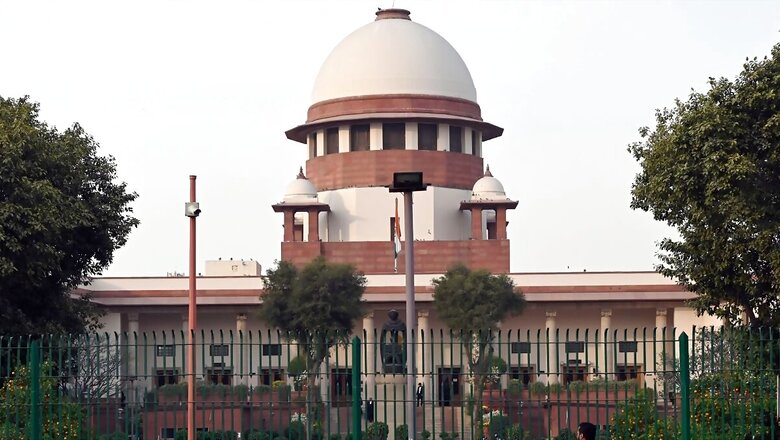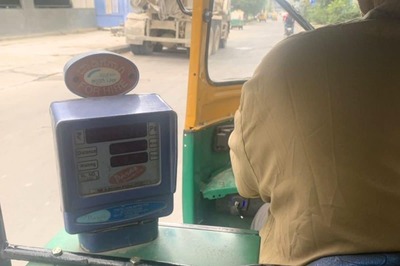
views
The Supreme Court has said that despite formal classification, temporary employees cannot be denied pensionary benefits if the employment bears substantial hallmarks of regular government service.
A bench of Justices Hima Kohli and Sandeep Mehta directed the Union government to grant the benefits of the 6th Central Pay Commission, including pensionary benefits under the Revised Pay Scale Rules, 2008, to a group of employees who worked for over three decades upon being appointed on temporary basis to manage the Compulsory Saving Scheme Deposits Fund of the Special Frontier Force in various positions.
The court held that the denial of pensionary benefits to these employees was not tenable or justifiable in the eyes of law as the same was arbitrary and violated the fundamental rights as guaranteed by Articles 14 and 16 of the Constitution.
“The denial of pensionary benefits solely on the basis of their temporary status, without due consideration of these factors, appears to be an oversimplification of their employment relationship with the government. This approach runs the risk of creating a class of employees who, despite serving the government for decades in a manner indistinguishable from regular employees, are deprived of the benefits and protections typically accorded to government servants,” the bench said.
After hearing advocate Neha Rathi for the employees/appellants Rajkaran Singh and others and Additional Solicitor General KM Nataraj for the Union government, the bench noted that the provisions of leave and other benefits, including grant of Assured Career Progression (ACP), reinforced the similarity between the appellants’ employment conditions and those of regular government employees.
These benefits are typically associated with formalised, long-term employment relationships within the government sector, it pointed out.
“Indisputably, the appellants have served SFF HQ for over three decades. While the duration of service alone may not be determinative, it is a significant factor when considered in conjunction with the other aspects of their employment. Such long-term service suggests a level of permanence and integration into the governmental structure that belies their classification as temporary employees,” the bench said.
The court also noted that the appellants performed duties similar to those of regular employees in the accounts section of SFF HQ.
“This similarity in job functions further blurs the line between the appellants’ status and that of regular government employees, suggesting that the distinction may be more formal than substantive. The extension of significant elements from the 4th and 5th CPC to the appellants further cements their plea of being employed in governmental functions,” the bench said.
The court also found the argument that the recruitment, selection, and promotion processes for SSD Fund employees did not follow the procedures used for regular employees as untenable as it failed to account for the substantive nature of the appellants’ employment over an extended period running into three decades.
Making a reference to Vinod Kumar and Others Vs Union of India (2024), the bench pointed out, “This court had said the essence of employment and the rights thereof cannot be merely determined by the initial terms of appointment when the actual course of employment has evolved significantly over time”.
To a question whether an entity can be considered an instrumentality or agency of the government, and thus an “authority” under Article 12 of the Constitution, the bench said the tests included but are not limited to; extent of financial support from the government; deep and pervasive control of the government; functions performed of public importance and closely related to governmental functions; entity enjoys monopoly status conferred or protected by the State; and the government department has been transferred to the entity.
“Neither all the tests are required to be answered in positive nor a positive answer to one or two tests would suffice. It will depend upon a combination of one or more of the relevant factors depending upon the essentiality and overwhelming nature of such factors in identifying the real source of governing power, if need be by removing the mask or piercing the veil disguising the entity concerned,” the bench said.
On this issue, the court further referred to Ajay Hasia Vs Khalid Mujib Sehravardi (1981) and Pradeep Kumar Biswas Vs Indian Institute of Chemical Biology (2002).
In the instant case, court also said that since the appellants’ batch seemed to be the last in their genre of SSD Fund temporary employees and thus, manifestly, the direction to extend the benefits of the 6th CPC and the RP Rules to the appellants should not form a precedent so as to have a detrimental effect on the financial health of the SSD Fund.
Accordingly, the apex court set aside the Delhi High Court’s judgment, which denied the benefits to the appellants by holding that it was unsustainable in the eyes of law.



















Comments
0 comment